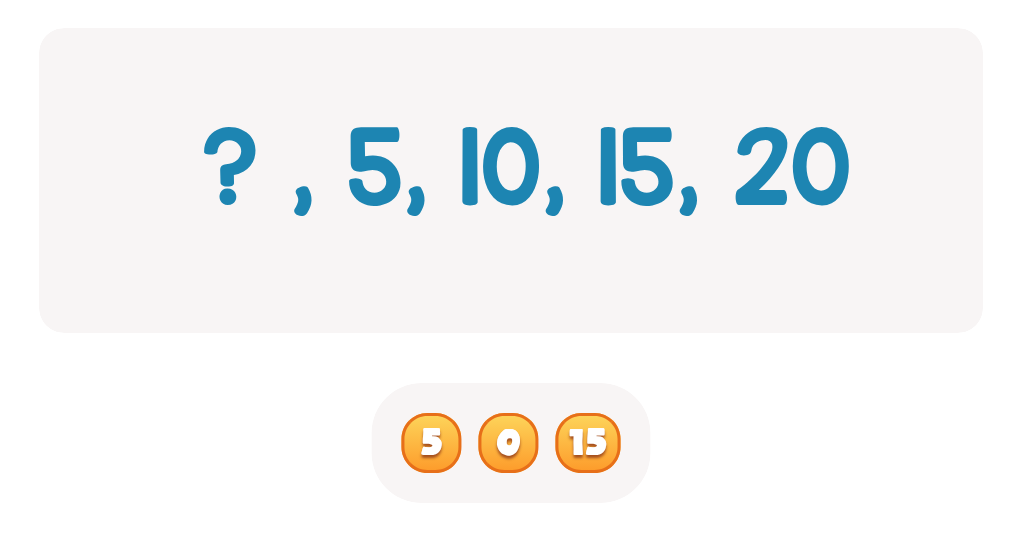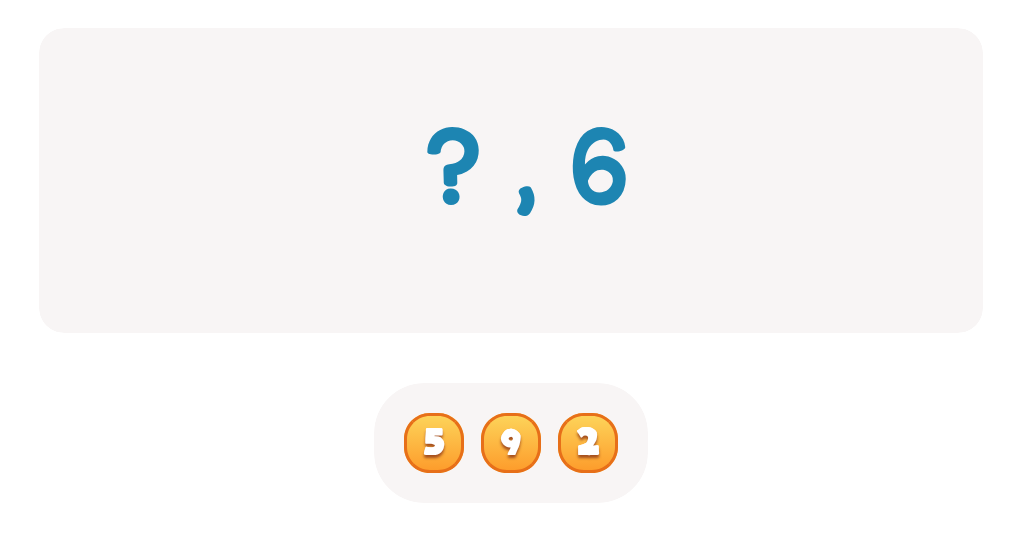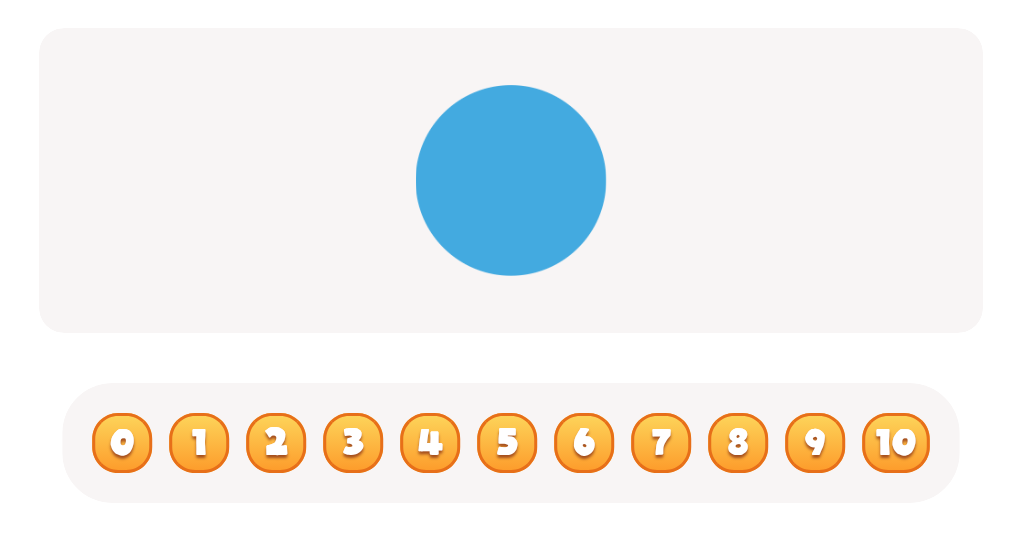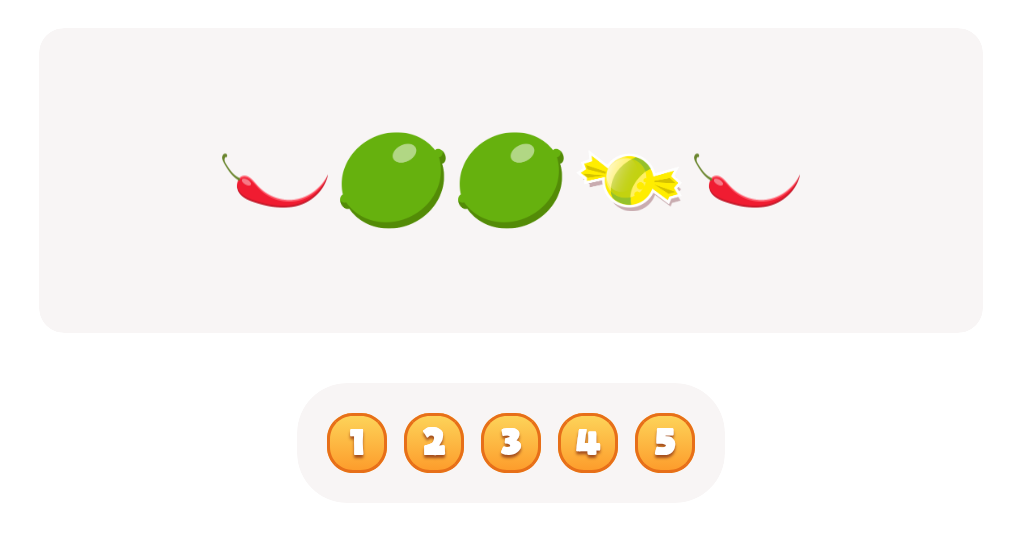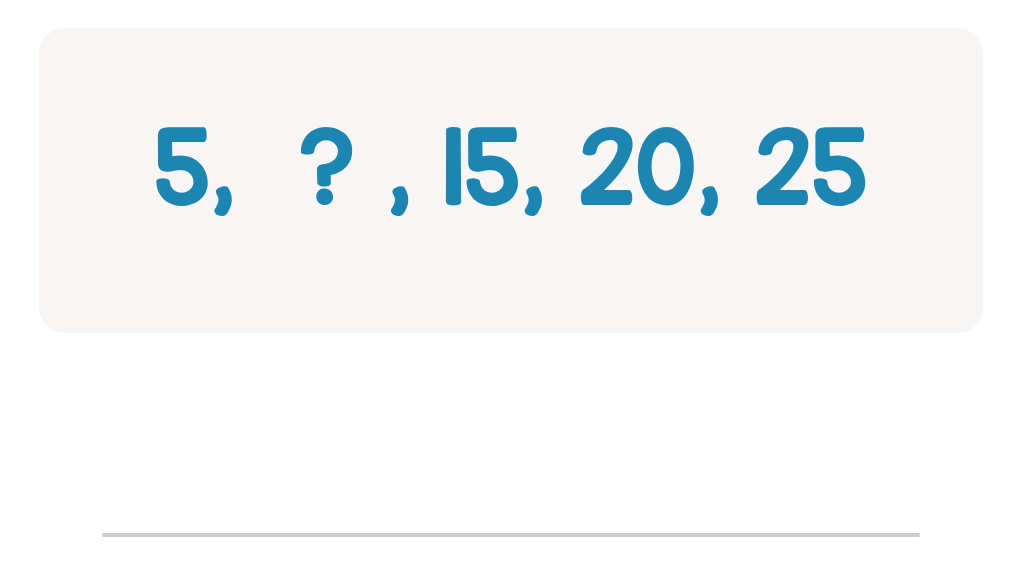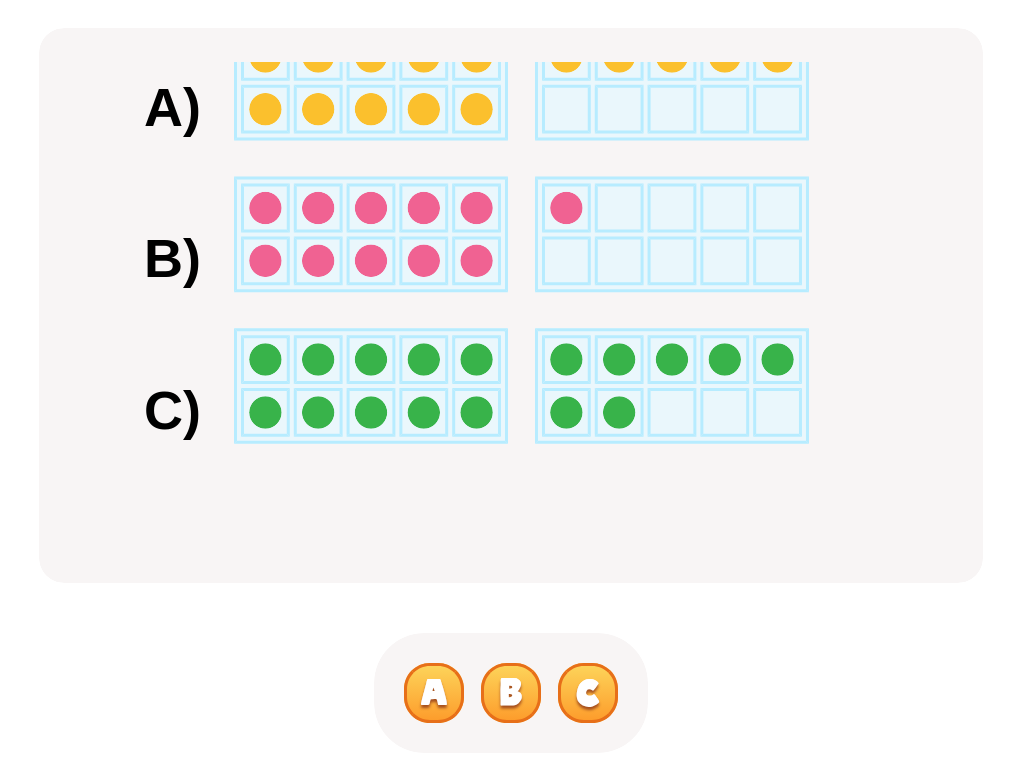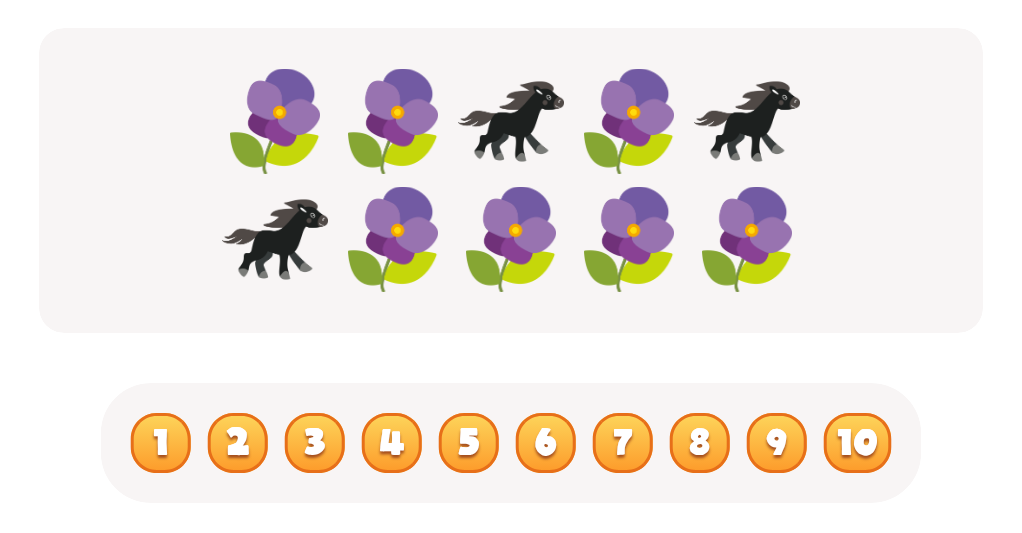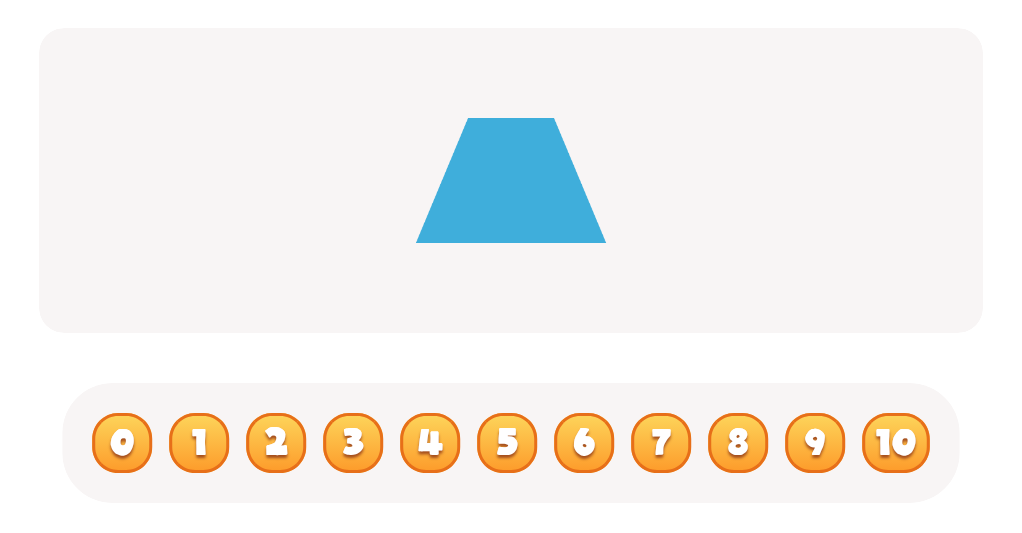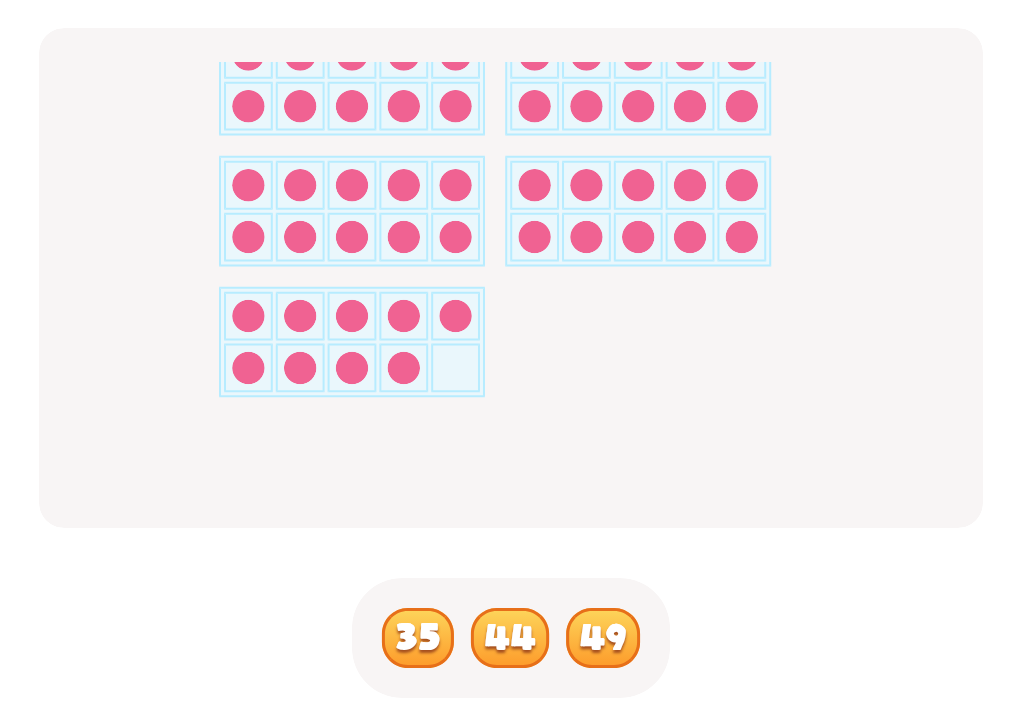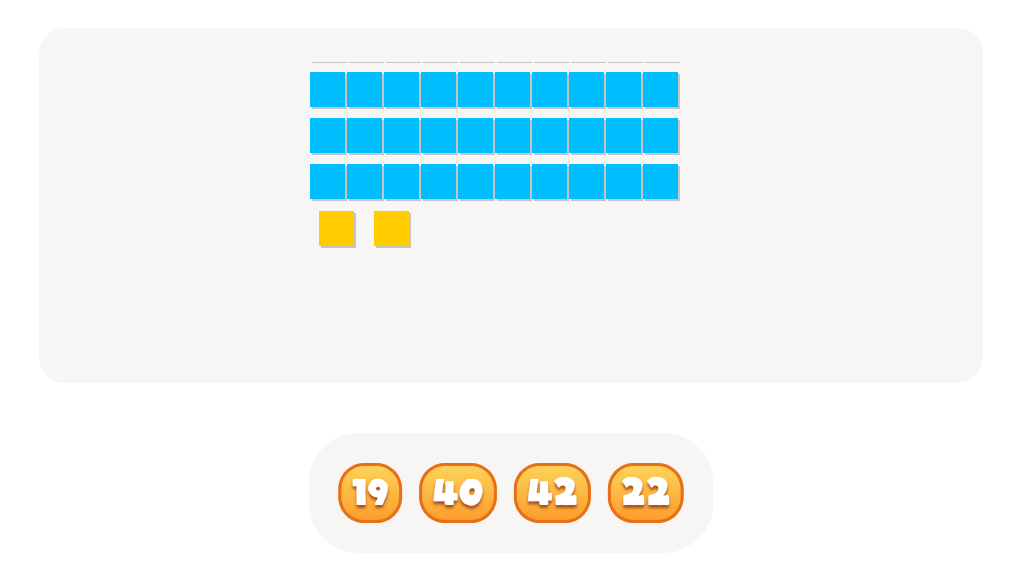Counting skills Normal Counting Worksheets for Ages 3-6
7 filtered results
-
From - To
Enhance your child's early math skills with our Counting Skills Normal Counting Worksheets designed specifically for ages 3-6. These engaging, kid-friendly worksheets encourage children to practice counting through fun activities like number tracing, counting objects, and identifying numbers. Perfect for preschool and kindergarten learning, our resources promote number recognition and improve fine motor skills. Each worksheet provides a progressive learning experience, tailored to keep young learners motivated and excited. Whether at home or in the classroom, our counting worksheets offer a fantastic way to support your child's development while fostering a love for numbers. Explore our collection today and watch their skills grow!
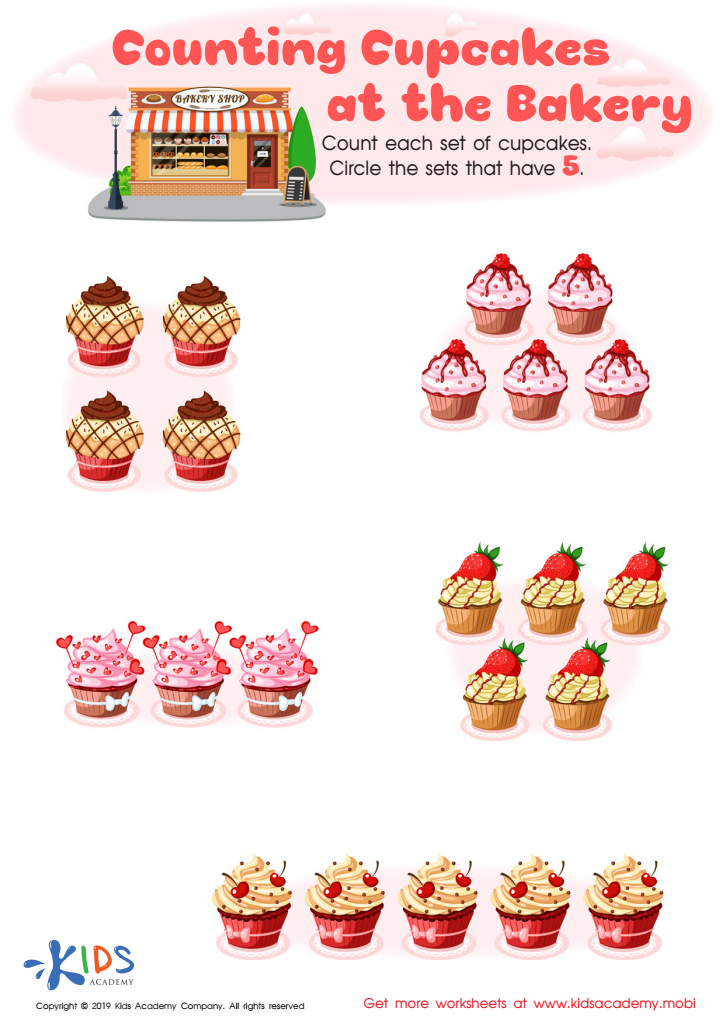

Counting Cupcakes Worksheet
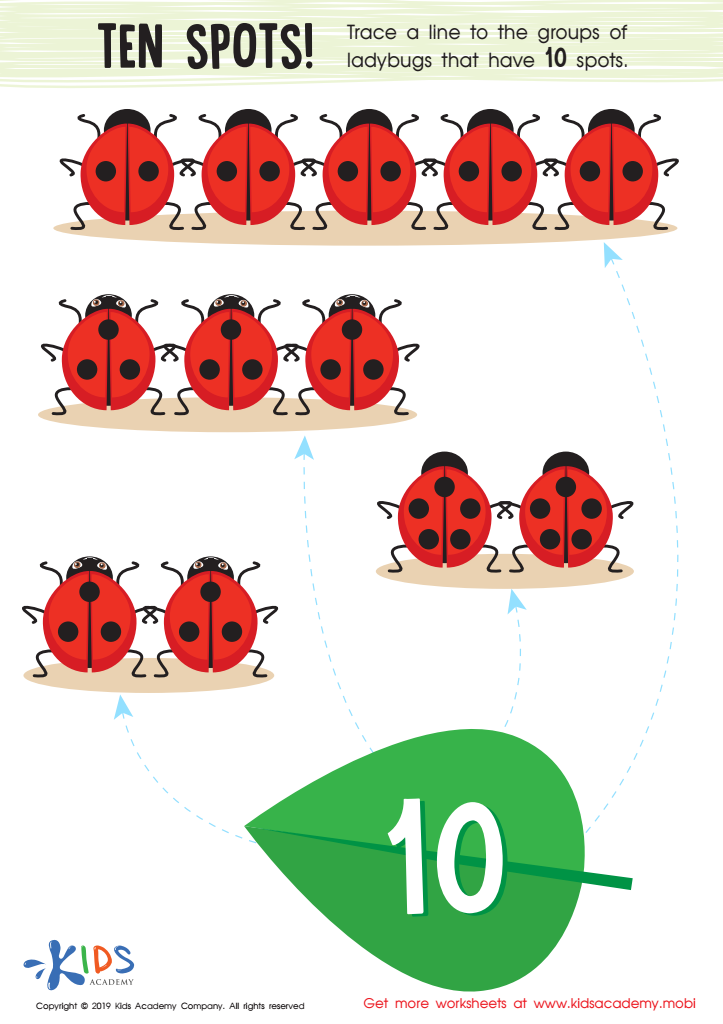

Ten Spots Worksheet
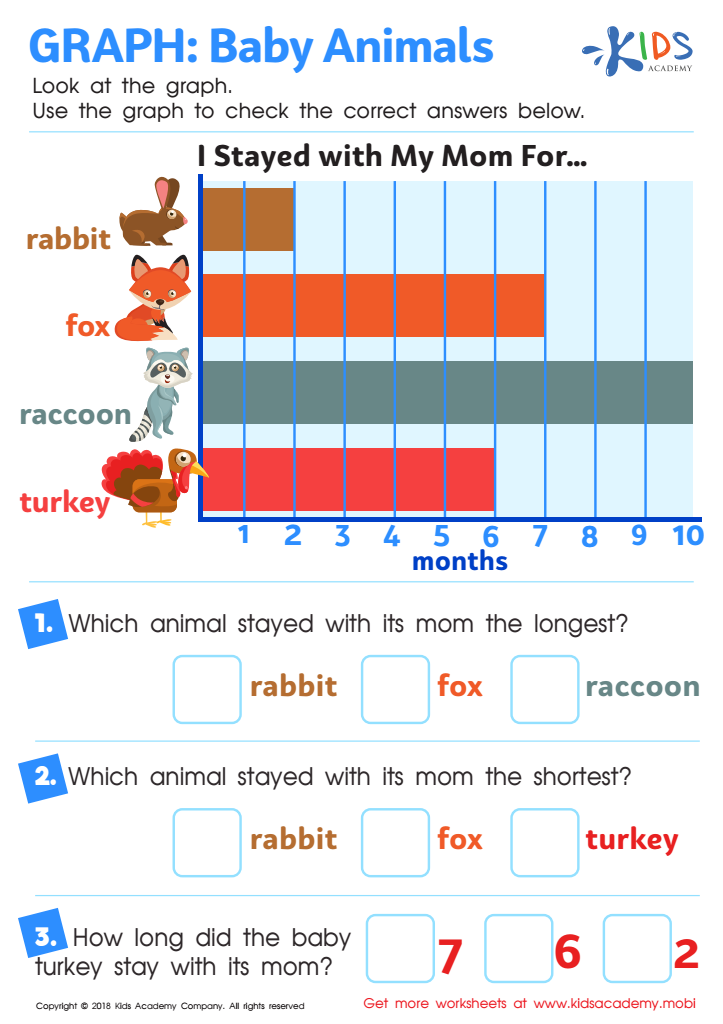

Graph: Baby Animals Worksheet
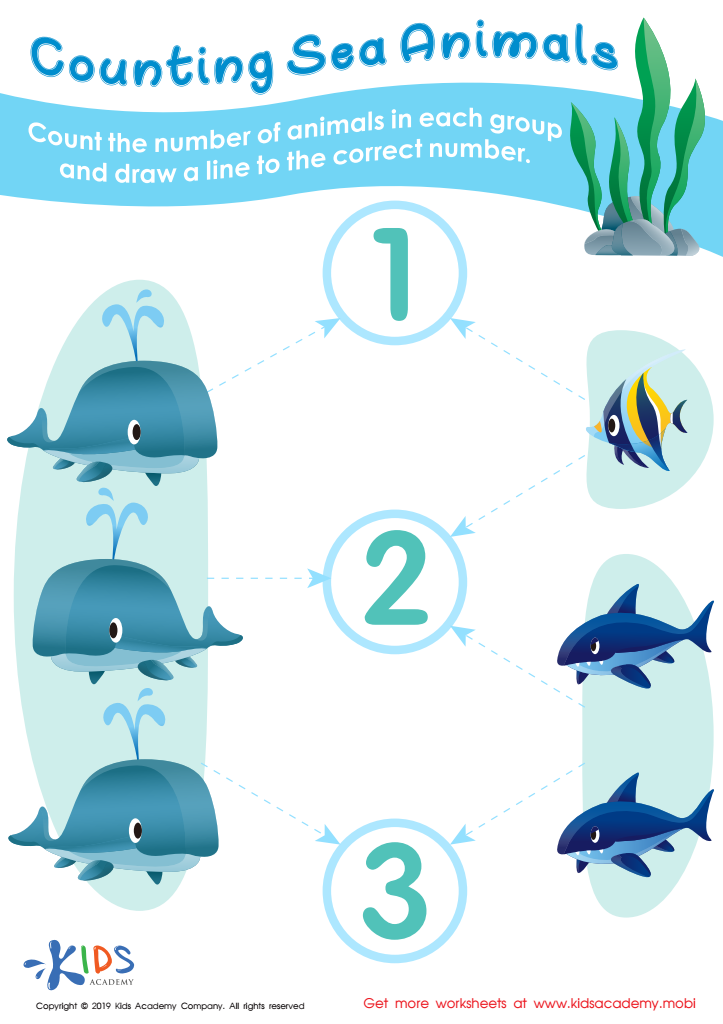

Counting Sea Animals Worksheet


Frog Countdown Worksheet
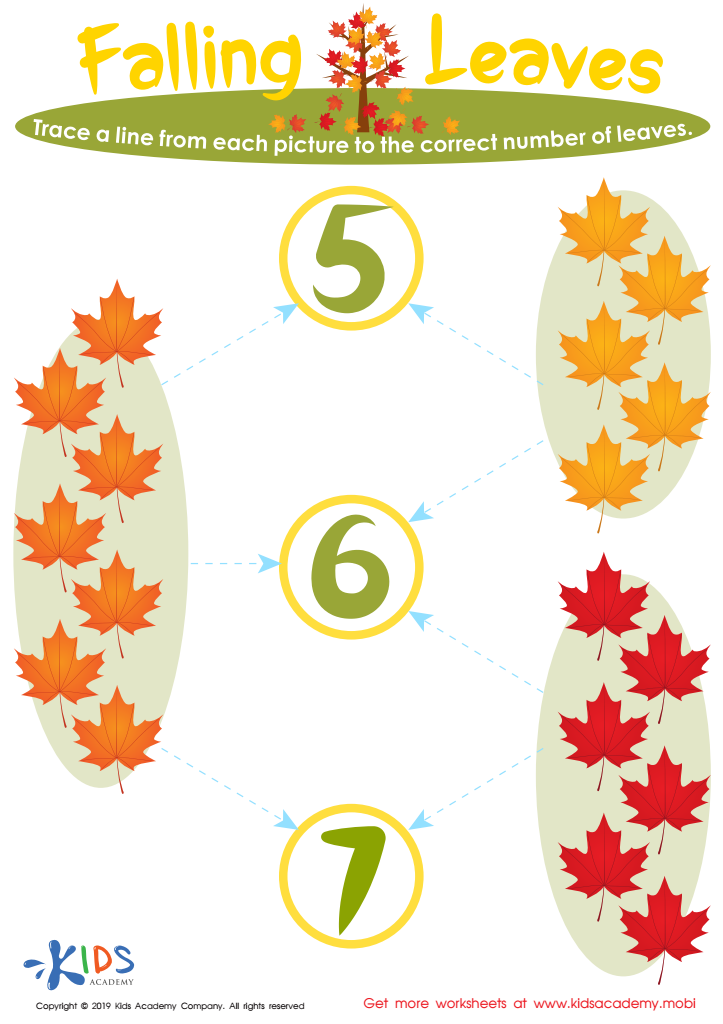

Falling Leaves Worksheet
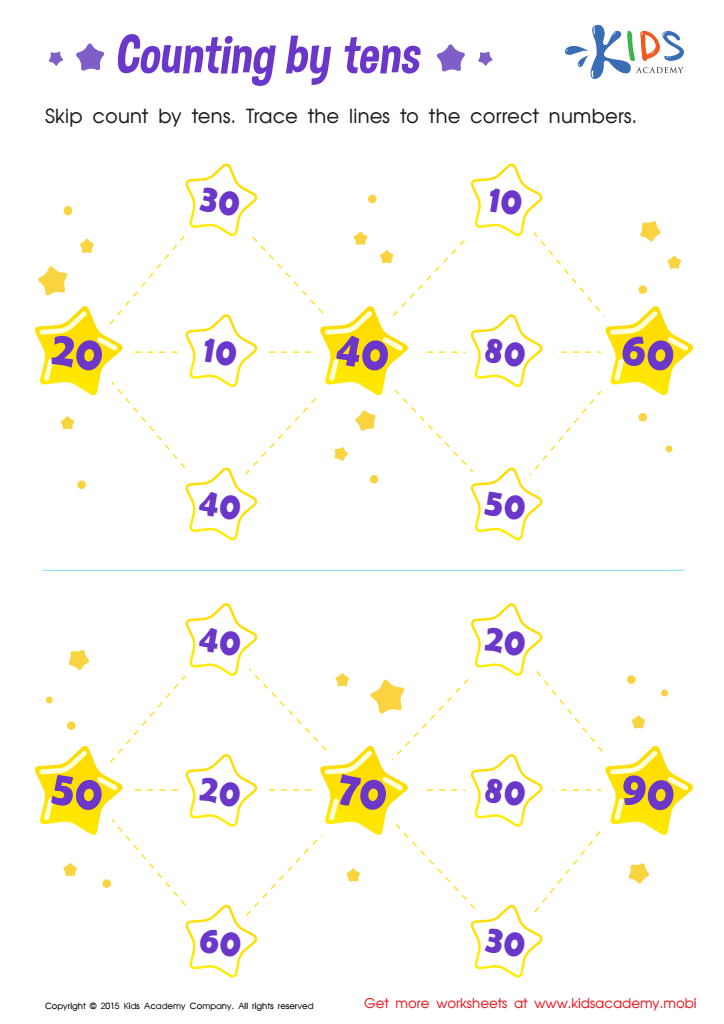

Learn Dozens: Counting by Tens Printable
Counting skills are foundational for young children's mathematical development and overall cognitive growth. For children aged 3-6, normal counting forms the basis of various early learning concepts, from basic arithmetic to problem-solving abilities. It enhances their understanding of number sense, which is not only critical for math but also vital in everyday life, such as understanding quantities, timing, and simple budgeting.
Parents and teachers play a crucial role in nurturing these skills during this formative period. Engaging children in counting activities—like counting objects, clapping hands, or singing songs—promotes language development, fine motor skills, and attention span. Moreover, counting helps young learners build confidence and a positive attitude toward math as they experience success in these early activities.
Fostering counting skills also prepares children for future academic challenges. A solid grasp of numbers and counting can make transitioning into more complex math concepts, such as addition and subtraction, easier and less intimidating. Additionally, early experiences with counting facilitate the development of critical thinking and logical reasoning, skills that are essential not just in mathematics, but across all areas of learning. For these reasons, parents and teachers should actively support the development of counting skills in young children.
 Assign to My Students
Assign to My Students
